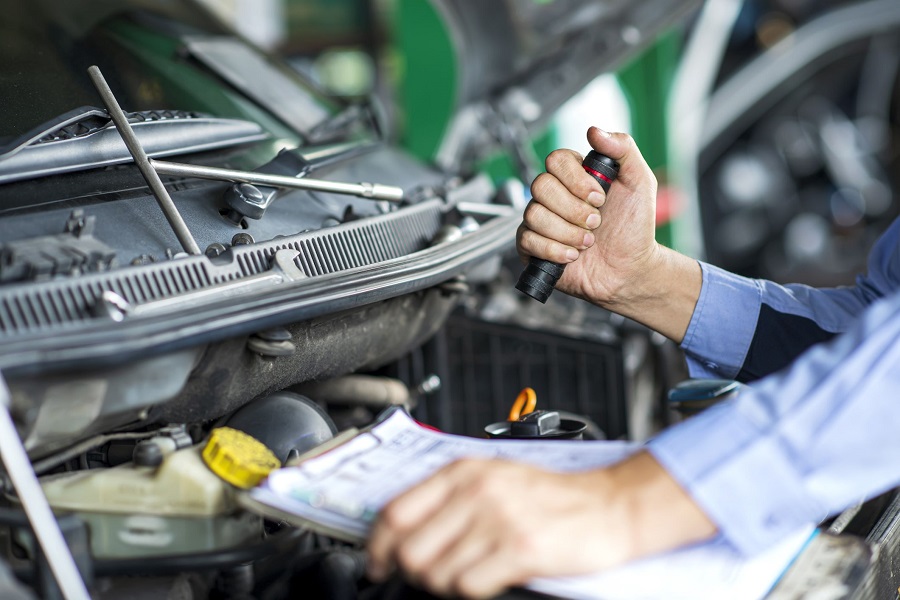A factory and extended warranty, are two different types of coverage that are both equally as important in maintaining and repairing your vehicle. While they may sound similar at face value, their differences lie in the various coverages provided.
What is a Factory Warranty?
A factory warranty or manufacturer’s warranty is the guarantee from an automaker that they will take on the repairs of your new car if they are to arise. This warranty lasts for a definite amount of time that depends on the brand of your car. A typical new car factory warranty covers 3 years/36,000 miles. So, during this time if there are any issues with your new vehicle the manufacturer will take on the costs and repairs. It’s very common to find short warranties with newer vehicles.

They exist to cover immediate defects or surprise repairs that may occur with owning a new vehicle. However, some car manufacturers provide longer factory warranties. But those generally just apply to powertrain, drivetrain, which cover engine and transmission parts, respectively. A factory warranty contains two types of coverage:
Bumper to Bumper Factory Warranty
This is exclusionary coverage over a vehicle, meaning it is the highest level of coverage a vehicle can qualify for. With this coverage an automaker will typically cover all elements and components of your vehicle with a few key exceptions.
Powertrain Factory Warranty
Powertrain warranties cover a vehicle’s most important parts. This includes the transmission, engine, and parts associated with the engine such as pumps and gaskets. A powertrain warranty is a promise from the car manufacturer that a newly purchased vehicle is good to use, but in the case it is not, they will take care of the costs and issue for you. These are the longer of the two factory warranties typically. Drivetrain warranties are not always included in standard factory warranties because vehicle companies either don’t provide them or they may be available for an additional fee at the time of purchase.
What is an Extended Warranty?
An extended warranty is an extension of the manufacturer’s/factory warranty on a vehicle. This is a service contract that provides replacement and repair for damaged parts. Extended warranties typically cover costs associated with electric and mechanical issues. Extended warranties are paid for monthly with a deductible.
How is The Cost of Extended Warranty Calculated?
An extended warranty’s costs are calculated through factors based on the condition of the vehicle that is seeking coverage. This includes items such as the vehicle’s make, model, mileage, and repair history. An extended warranty on a Mazda, for instance, will typically cost less than on a BMW, but the mileage, model, and condition can sway things the other way around. Extended warranties differ with each provider and typically you will have to shop around to find the best deal that works for your vehicle and finances. Typically, car owners will find variance in the costs between shopping for an extended warranty from the dealership they purchased their car from and other third-party companies.
Can You Have Both Factory and Extended Warranty?
You are allowed to have both a factory and an extended warranty. You can purchase the extended warranty from a third party provider or directly from the auto dealer when purchasing a new car. However the extended warranty will not take effect until the factory warranty expires. For this reason, it may be best to wait and purchase the extended warranty not immediately but right before the manufacturer warranty expires. Otherwise you will be paying a premium on a service you will not be able to use for quite some time.
One of the privileges of having both warranties is that typically they both do not cover the same things, so by having both you can be covered in one area and get coverage in another as well. Typically an extended warranty will cover electrical and mechanical parts, not covered in a factory warranty. One argument, however, for obtaining an extended warranty while your factory warranty still provides coverage is that you may receive a lower rate for the extended warranty since your vehicle is still brand new.
Do I Need Extended Warranty After Factory Warranty?
Purchasing an extended warranty after the factory warranty is not required but it is a great option to keep your car protected and save money on repair costs.